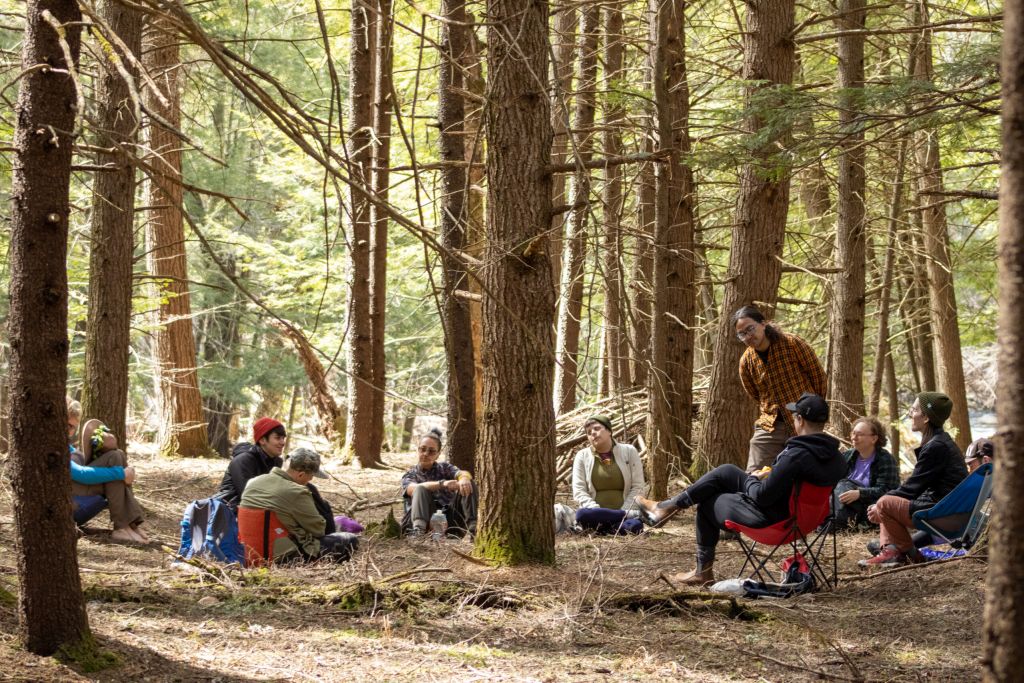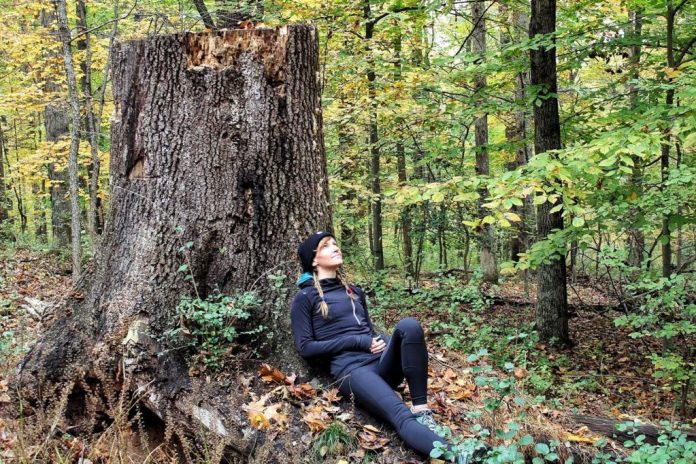Many people know that hiking in nature can help reduce stress and anxiety, but not everyone is familiar with forest bathing, a practice that enhances the therapeutic effects of a scenic walk. While hiking is an excellent way to enjoy the outdoors and exercise, forest bathing involves being calm and quiet among trees and fully engaging with the natural surroundings.
What is Forest Bathing?
Forest bathing, or Shinrin Yoku, originated in Japan in the 1980s. It involves taking deep breaths and immersing oneself in the forest with full presence. Unlike hiking, where the mind can wander to thoughts of work or personal challenges, forest bathing is a mindfulness practice that brings the mind into the present moment by engaging all five senses. A forest bather might observe the colors of the leaves, notice the sun’s rays filtering through the trees, close their eyes to breathe in the scent of pine, listen to the crackling of fallen leaves underfoot, and feel the sensation of the wind on their cheeks.
During the pandemic, forest bathing gained popularity in the US as people sought ways to calm their nervous systems and connect with nature while social distancing. However, forest bathing is more than a lifestyle trend; research shows it offers numerous health benefits.
Forest Bathing and Mental Health
While hiking primarily improves physical fitness, forest bathing enhances mental and emotional health. For those with anxiety, forest bathing can calm the nervous system by shifting attention from worries to the natural elements around them, with measurable results. Studies indicate that forest bathing can decrease the stress hormone cortisol. One meta-analysis reviewed 971 articles and found that forest bathing effectively reduced serum and salivary cortisol levels, demonstrating its potential to reduce stress.
Another meta-analysis examined the impact of forest bathing on people living in urban environments, who generally have a higher risk of hypertension and psychological stress. The practice not only reduced their stress but also significantly lowered their blood pressure. “Forest bathing can be beneficial for everyone, but it is particularly advantageous for individuals living in urban environments,” says Dr. Harsono. “Urban dwellers typically experience higher stress levels, noise pollution, and reduced access to natural settings. Forest bathing provides them a valuable opportunity to escape these stressors and experience improved well-being through connection with nature.”

A Natural Immune Booster
Forest bathing is not only important for improving well-being but may also enhance physical health. Research suggests that forest bathing can increase immune cell activity and promote the expression of anti-cancer proteins. In one study, 12 men aged 37-55 spent three days practicing forest bathing in three different forests. The results showed a 50 percent increase in natural killer cells (which can kill tumor cells) and an increase in anti-cancer proteins like perforin, granzymes, and granulysin.
Another study found that forest bathing improved immune function. Inhaling the oils released from trees (phytoncides) decreases cortisol levels and increases natural killer cell activity. These findings suggest that forest bathing may have a preventive effect on cancer by stimulating immune responses, though more research is needed to understand this phenomenon fully.
Forest Bathing Anywhere
One might think that forest bathing is only possible in rural areas, but studies show that urban forest bathing, such as being mindful in a nearby park, can also provide benefits. One study observed the mental well-being of 44 adolescents before and after urban forest bathing. The results indicated reduced anxiety, rumination, and skepticism, along with increased feelings of social connectedness.
Landscape designers are also recognizing the healing effects of nature. At Stanford’s Lucile Packard Children’s Hospital in the heart of the San Francisco Bay Area, patients and their families have access to gardens and outdoor spaces where they can stroll and mindfully take in the natural beauty.
Forest bathing offers a profound way to connect with nature and improve both mental and physical health. Whether you live in the countryside or an urban area, taking time to immerse yourself in the natural world can provide numerous benefits. By practicing forest bathing, you can experience reduced stress, improved immune function, and a greater sense of well-being.









